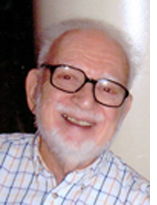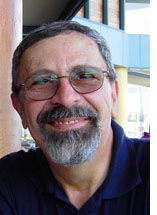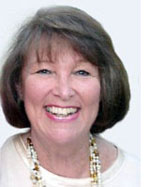| |
|
THE VIEW FROM JINSA
Gaza chaos likely to metastasize, posing new dangers to Israel, U.S. forces, Egypt
By Shoshana Bryen
 [Ed. Note: the following report comes to us from Lenny Ben-David, a former Israeli diplomat. Note, in particular, the implications for the U.S.-led Multinational Force Organization in the Sinai. You can read more of his work at www.lennybendavid.com.] [Ed. Note: the following report comes to us from Lenny Ben-David, a former Israeli diplomat. Note, in particular, the implications for the U.S.-led Multinational Force Organization in the Sinai. You can read more of his work at www.lennybendavid.com.]
The pictures from the Gaza-Egypt border show tens of thousands of Gazans celebrating their "release" from the Hamas-controlled area. But the mass shopping spree may soon be replaced by a paroxysm of deadly terrorism. Consider the terrorist organizations and targets now in play
- Hamas and the Palestinian Islamic Jihad are now relatively free to travel throughout the Sinai, including the long, lightly defended Egyptian-Israeli border. They are likely equipped with new weapons and explosives obtained from Hamas arsenals in Sinai. Those weapons no longer have to make the arduous route through tunnels into Gaza. Possible targets: All of Eilat and Israeli army positions and remote villages along the border. Exactly one year ago, in January 2007, a suicide bomber from Gaza infiltrated from Sinai and killed three Eilat residents.
- Egyptian resorts in Sinai are high on the terrorists' target lists, particularly those that cater to Israeli and European tourists. Dozens of guests were killed in a Taba hotel bombing and beach camping areas in October 2004. Al Qaeda was suspected.
- Al Jazeera reported on Sunday that Egyptians arrested 20 armed Palestinians in Sinai. They were equipped with explosives and electronic devices to listen to Egyptian military transmissions. If true, the arrest suggests that foreign intelligence services may be playing a role in directing the terrorists. Best guess is Iranian, Hezbollah, and/or al Qaeda involvement.
- The 1,800 Multi-National Force and Observers (MFO) in Sinai are sitting ducks for the terrorists. The lightly armed soldiers come from 11 nations, but by far the largest contingent is from the United States. In recent days there were reports that the American forces withdrew from the El Gorah base near Al Arish. U.S.-led multi-national troops are at war with Islamic radicals in Afghanistan and Iraq. Chasing the Americans out of another base in the Middle East will be a great achievement for Nasrallah, Ahmadinejad, Bin Laden, and Assad. In August 2005 an IED was detonated near an MFO vehicle. In April 2006 a suicide bomber attempted to attack an MFO vehicle in Mansoura, Sinai.
- January 27, the Fiji Battalion in Sinai reported that one of its three checkpoints is only 100 meters from where the Gaza security wall was breached. Click here for details. The unit, according to its commander, "is observing and monitoring the movement from Gaza into Egypt and out of the designated zone of the MFO which we are part of."
The tremors out of Gaza could spread across the Sinai and the Suez into Egypt itself. The Muslim Brotherhood does not require much to ignite riots in the streets of Cairo.

Should Allies have bombed Auschwitz?
By J. Zel Lurie
 DELRAY BEACH, Florida -- During President Bush’s recent tour of Yad Veshem, guided by Avner Shalev, the museum director, Mr. Shalev pointed out a U.S. Air Force photo of the crematoria in Auschwitz II (Birkenau), which were capable of murdering over a million Jews a year. DELRAY BEACH, Florida -- During President Bush’s recent tour of Yad Veshem, guided by Avner Shalev, the museum director, Mr. Shalev pointed out a U.S. Air Force photo of the crematoria in Auschwitz II (Birkenau), which were capable of murdering over a million Jews a year.
If our air force was able to take a picture of the murdering machinery then they were capable of bombing it, thought President Bush. Why were they never bombed? President Bush asked his Secretary of State, Condoleeza Rice, who was standing nearby,
Accoding to Shalev, they discussed the Jewish Agency’s request in 1944 that the rail line from Budapest to Auschwitz be bombed to save Hungarian Jewry.
“We should have bombed it,” President Bush told Shalev. He didn’t specify but Secretary Rice later told reporters he meant the rail line.
Thus he perpetuated one of the most enduring myths about the Holocaust: that Hungarian Jewish lives could have been saved if the Jewish Agency’s request had been heeded.
Here are the facts as I presented them to the readers of the Jewish Journal of South Florida on April 24, 2001 under the headline Why Auschwitz Was Not Bombed. A symposium of experts who favored a bombing for emotional reasons and the majority who opposed it for practical reasons had just been published by the U.S. Holocaust Museum. It was edited by Michael Berenbaum, director of research for the U.S. Holocaust Museum and Michael J. Neufeld, curator of the National Air and Space Museum.
Fact number one. By order of Admiral Horthy, the ruler of Hungary, the deportation of Jews was halted in early July 1944. The last train from Budapest arrived in Auschwitz on July 11. In the previous eight weeks, no less than 437,402 Hungarian Jews had been deported.
Elie Wiesel, who was 16 at the time, has testified that his father, a leader of the Jewish community in Sighet, had never heard of Auschwitz.
Most of the Hungarian Jews. including Elie Wiesel’s mother and sisters, were gassed on arrival. Able-bodied men, like Elie and his father, were sent to work in the vast I.G. Farben synthetic oil works, called Auschwitz III, a couple of kilometers from the main camp.
The fact that the deportations had stopped did not reach Anglo-American intelligence for several weeks,
Fact number two. On June 11, the Jewish Agency executive in Jerusalem, discussed the rapid deportations from Hungary, which had been ongoing for four weeks with three or four trains a day. They discussed asking the Allies to bomb Auschwitz but they voted by eleven to one not to propose it because it would kill Jews.
Fact number three. On July 6, unaware of Admiral Horthy’s order to stop the deportations, Chaim Weizmann and Moshe Shertok met in London with Anthony Eden, Britain’s foreign minister. Aware of the decision of their colleagues in Jerusalem that Jewish prisoners not be endangered they made a simple request: bomb the railroad from Budapest to Auschwitz.
Weizman and Shertok (who later Hebraized his name to Sharett) did not know that there were many railroads from Hungary to Southern Poland, They were probably unaware that heavy bombers fly high in the heaven, several miles up. At that distance, they could not see tracks. They would have to bomb the area hoping that tracks would be hit. And if they were hit they could be fixed in two or three hours.
Obviously, President Bush and Secretary Rice were just as ignorant 63 years later.
Anthony Eden passed on the Jewish request with a codicil added by Winston Churchill. He told the R.A.F. that “Churchill requested bombing the camps themselves with the object of destroying the” crematoria.
The R.A.F. carefully examined the request by the prime minister. They asked the Foreign Office to supply photos of the crematoria so they would know what they were bombing. The Foreign Office did not have any photos. Correspondence went back and forth and ended when Eden learned that deportations from Hungary had stopped.
Fact number four: The request that the American Air Force bomb the railroad and the camps was made by the War Refugee Board and various Jewish groups. To all of them, John J. McCloy, assistant secretary of War, replied diplomatically that bombing the crematoria would be impractical and the massive effort required would detract from the war effort.
The bombers would have to make a round trip of 7,000 kilometers from Foggia in Southern Italy. In order to hit the four crematoria they would have to carpet bomb the camp killing thousands of Jews, while the SS guards would be sitting in shelters.
Fact number five:. Destroying the I.G. Farben synthetic oil works at Auschwitz III was an important goal of the war effort. On August 20, 1944, 127 bombers made the long trip from Foggia. They did considerable damage but the plant never stopped operating. One plane was lost. One prisoner managed to escape during the bombing.
In Night, Elie Wiesel describes with mixed emotions how he cowered in his bunk while the bombs fell. He was happy that the plant was being bombed but he was worried for his father who was working.
On September 13, the I.G. Farben plant was bombed once again by 96 planes. Over a thousand 500 pound bombs were dropped from a height of 23,000 feet, about four miles. Anti-aircraft fire was heavy and three planes were lost. The plant continued to operate despite the damage
At each bombing Auschwitz I and Auschwitz II were hit by stray bombs, The SS offices were destroyed and 15 SS men and 28 Jewish slave laborers died.
Fact number six. Pictures were taken during the bombing and the next day by a specially equipped photo plane from 30,000 feet. On the edges of the photos are Auschwitz I and Auschwitz II (Birkenau) where the crematoria are located, but the photo interpreters in 1944 were not looking for them nor could they have distinguished them from other buildings. They were limited to a four times enlargement and they had no pictures of the crematoria.
Thirty-four years later, in 1978, two CIA men were able to enlarge these pictures 35 times. They found the crematoria, a freight train with 65 cars, and groups of people waiting to enter the gas chambers.
These are the shocking photos exhibited at Yad Vashem in Jerusalem and at the Holocaust Museum in Washington. Alongside one picture is a l944 letter from John McCloy rejecting a request to bomb the crematoria. The impression on the viewer, like President Bush, is that these photos were available to the War Department in 1944. They were not.
These are the pictures President Bush saw for the first time at Yad Vashem. He did not know and neither did Secretary Rice that bombing the camps and the railroad tracks was not feasible in 1944 nor would bombing have saved a single Jewish life.
Most experts who say the bombing should have occured recognized that Jewish lives would not have been saved. They considered the bombing as an essential moral statement against the Nazi program of the extermination of Jews. President Bush’s verdict “we should have bombed it” does not fall into this moral category.
The War Department and Franklin Delano Roosevelt, the commander-in-chief, preferred to use our limited resources in direct action against the Nazi war machine and not in moral statements.
But the myth “we should have bombed it” continues unabated.
 CANBERRA—People often tell me that one of the outstanding things about Jews is that we have a history of being smart in business. I am not sure that this is true, but occasionally such stories inspire creativity within me – and maybe some chutzpah -- especially when it comes to handling unwanted intrusions into my time by persistent hawkers and sales people. CANBERRA—People often tell me that one of the outstanding things about Jews is that we have a history of being smart in business. I am not sure that this is true, but occasionally such stories inspire creativity within me – and maybe some chutzpah -- especially when it comes to handling unwanted intrusions into my time by persistent hawkers and sales people.
I am absolutely certain that I am not alone when it comes to hating the phone calls that usually come at the most inconvenient times to try to sell me something, or pretend that they are "simply doing a survey" or offer me a free trip or concert tickets or something else provided I take the call and answer some questions.
Have you ever noticed how they perform according to a script?
It's usually "Good <insert time of day> Mr./Ms <insert name of person being called> how are you?"
To which of course you are supposed to respond with something like "I'm fine thank you, how can I help you?"
Instead of what you really want to say which is more likely to be along the lines of: "Who wants to know? Who the hell are you and what do you want? I am just about to <insert whatever it is that this call has just interrupted>"
At this point the caller—who could be someone from a call centre in India or somewhere else in the world will then proceed with the real purpose of the call which is to tell you the wonderful news about whatever product their company happens to be marketing at that point in time.
By allowing the call to proceed to this point you have just confirmed to the caller that you are normal, polite, and somewhat tolerant and you have also provided some really meaningful information. You have told the caller and his/her company that you are who they think you are, and you have confirmed that you are of a particular gender, that your phone number is correct and that you are at home doing something at this time of the day.
Now all of this is more information about you than you may wish the caller to know.
So what can you do to prevent yourself from giving away all of this information?
The most useful tip that I have for people is that they should recognise that the other party is following a script and simply interfere with it.
For example, when the first part of the script is stated respond with something completely unexpected like:
"Do you have $1,000 handy?"
The person at the other end will in all likelihood look at the possible answers to his or her question and be totally bamboozled about how to respond.
Press your advantage at this point and say something like:
"If you would care to let me have your bank account details so that I can debit your account to the value of $1,000 I will be happy to continue this call."
At this point, even the most persistent caller will usually hang up and with any luck will place a big black mark against your name on the list he/she has been provided noting that you are a waste of time and space and never to call you again.
At the end of the day, their job is to try and get your attention about whatever it is they are selling and your job is to protect your privacy, ensure that you do not get called again and where possible, let people know that your time and your intellectual property are valuable commodities.
Provided that they are willing to pay, you might be persuaded to part with some, for a fee. Otherwise it's no sale!
The psychology of interfering with scripts is really simple.
Most people perform tasks in a way that becomes routine over time.
Thus, how you respond to greetings, how you do "normal" things, is usually conditioned over time by repetition, until it becomes so well learned that you have virtually automatic responses. People who call you to try and sell you something, rely on this learned behaviour.
They use a script that simulates normal conversation and so stimulates the normal auto responses. Before you know it, they have obtained details about you and some of your habits.
Even if they do not make a sale at that point they have obtained information about you that they can then sell to others and/or take advantage of as and when they call again.
Similarly, if you allow web sites to control your browsing, by permitting cookies you will be sending information back to the source that can identify your browsing habits and hence provide valuable information that the site can then use to target further information to you and at the same time, if they are really clever, use data mining techniques to aggregate the information that they obtain and so develop a data base over time that they can use for their own marketing purposes or to sell to others who may wish to market something that happens to be suitable for people with your profile.
There is not much you can do about modern technology so as it becomes more intrusive in your life you can at least start thinking of ways to control and benefit from the intrusion that is inevitable.
Your privacy is valuable. Charge for it or protect it, but do not give it away.


THE JEWISH CITIZEN
Ethiopian Jew's show a comical eye-opener
By Donald H. Harrison
 LA JOLLA, California—It Sounds Better in Amharic, a one-man show featuring Yossi Vassa, an Ethiopian immigrant to Israel, actually sounded pretty good in English! LA JOLLA, California—It Sounds Better in Amharic, a one-man show featuring Yossi Vassa, an Ethiopian immigrant to Israel, actually sounded pretty good in English!
Vassa was at times humorous as a stand-up comic, and at times grippingly sad as he described his family's 700-kilometer journey from their village in Ethiopia to a transit camp in the Sudanese desert and later onto their absorption and eventual integration into Israeli life.
The first part of the journey took three months, compared to 40 years for Moses and the children of Israel to travel a similar distance, "those amateurs!"
One could feel the collective throats of the Limmud audience tightening at the Lawrence Family JCC on Sunday, January 27, as Vassa described how his grandmother and two younger brothers succumbed to death in the broiling hot desert of Sudan, where the family waited for months for transportation to the rendezvous spot with an Israeli plane that would take them to their new lives.
He explained that in Ethiopian culture, elders are paid great respect. The oldest person is always the first to be served food. A six year old child will give first bite of his banana to an eight-year-old child. "Your father is your master; your grandparent is God," he said.
Imagine his shock after arriving in Israel when he saw a playmate backtalking to his mother. The mother had asked his friend to please do his homework, and the friend snapped back with an expletive to his mother and added: "stop nagging me, you are driving me crazy." Vassa said if he ever said such a thing to his parents, his father might say something like this to him: "Just because you are my son, I am going to give you the opportunity... to commit suicide."
In Ethiopia, he said, they have seasons, with spring particularly welcome. In Israel, he suggested, if people want winter, they go to the wall of their apartments and turn on the air conditioner. If they want spring, they go to the telephone and order flowers.
In Israel, when a guy flirts with a girl, he asks for her telephone number, and if he gets it, the relationship quickly progresses. In Ethiopia, "you can't just pick up a girl, she has to be a virgin," he said. Further, marriages will not be permitted if the girl and the boy have any common relatives seven generations back. "You are 12 years old and you are doing a PhD in family genetics," he quipped.
When boys and girls meet, it is at the synagogue, but they sit on opposite sides of the mehitza. They might call each other on the cell phone -- but there are no phones. Even if they could go to a movie together, the nearest movie house from his village was 400 kilometers. So, he said, marriages are arranged. "You go to the chuppah, you lift up the veil, and your whole world collapses."
Children are forced to mature more quickly in Ethiopia than in Israel, he suggested. "A 3-year-old kid in Ethiopia who doesn't work is unemployed." Turn that child loose on a playground in Israel and "he will fix the swings and the slides and at the end of the month he will want his paycheck."
A man named Fatalovich explained to them in their village how they could get to Israel. "Everybody talked about him--they thought he was Moshe Rabenu (Moses)" as "he spoke through a translator." But Fatalovich was a white man--and could Moses be white? Nah.
Anyone who has seen the beautiful Ethiopian tapestries of biblical scenes are familiar with the fact that the personages in Hebrew Scriptures--from Adam through King Solomon--are depicted as black people.
The first time he saw a white man, Vassa joked, he thought he was witnessing a medical miracle.
The one-man play is said to be headed for New York, but before it gets there, it could use some trimming and better pacing. A number of people headed for the exits before it was over, a sure sign that Vassa needs to do some rewriting. By all means, he should continue to hone the production.
Although truth occasionally is sacrificed for humor, the play does provide non-Ethiopian Jews with some new perspectives. Limmud is billed by its sponsor, the Agency for Jewish Education, as a day of Jewish learning—and Vassa's one-man tour-de-force helped make it so.



ARTS IN REVIEW
Ion scores with The Pillowman
By Carol Davis
 SAN DIEGO--I wouldn’t recommend Martin McDonagh’s Pillowman, now in a San Diego premiere, to the weak of heart. It’s ghoulish, morbid, gruesome, some of it chillingly funny if you like the macabre, and it’s downright eerie. In fact it’s so chilling that you don’t even know you are leaving your own fingernail imprints on your own skin. SAN DIEGO--I wouldn’t recommend Martin McDonagh’s Pillowman, now in a San Diego premiere, to the weak of heart. It’s ghoulish, morbid, gruesome, some of it chillingly funny if you like the macabre, and it’s downright eerie. In fact it’s so chilling that you don’t even know you are leaving your own fingernail imprints on your own skin.
How could a story about a short story writer who writes stories about smothering and killing local children be so riveting and yet so compelling that you must see it to the end? Little Ion Theatre tucked away in the Lab At The Academy of Performing Arts at 4580-B Alvarado Canyon Road, just below Grantville Trolley Station, is like the ‘little engine that could.’And it does.
All the ingredients for success are there. Ion Theatre’s artistic director Claudio Raygoza brings about just the right amount of tension, pathos and even humor from his actors; Jeffrey Jones as Katurian, the writer who, well, writes about killing children in non- fiction short stories who show up dead; Matt Scott and Jamie Effros are Tupolski and Ariel ‘good cop, bad cop’ interrogators whom you come to expect to be just that; and John Polak is Michal, Katurian’s simple-minded brother who gives a touching performance as the abused son. The remaining cast members include Ari and Zev Lerner, Kim Strassburger and Bill Dunnam as Mom and Dad, and Jessalyn Hernandez as the girl and Maria.
Set (Claudio Raygoza and Matt Scott) in an interrogation room in an unnamed police state where you don’t have to commit a crime to be interrogated, you can feel the chill setting in immediately, not just from the cold looking grey bricks of the walls in the background, but also from the nature of the questions. Interestingly, one comes up out of nowhere, about a victim, an Aaron Goldberg, a “Jew Boy” who lives in the “Jew Quarter.” Katurian asks, “Is this about Jews?” He retorts, “I don’t know any Jews”. And the questioning continues.
By the time both cops get done with Katurian, and they alternate back and forth with their own methods of questioning, one with electrodes the other by bullying and with bigoted references toward the “Jews”, (Jones is perfect as the nervous, twitchy and anxious writer willing to agree to anything thrown at him as long as protects his stories and they live long after him) you are almost convinced that they may have the right man. In one exchange, The Pillowman pleads that “he didn’t kill anyone but the children who did die, would have led horrible lives anyhow.” Ouch!
In another exchange, Katurian’s brother is brought into the room with him and the exchange between the two brothers is heartbreaking, as Katurian tries to ‘protect’ his brother, whom he tried to shield all his life, only to end up killing him. It is strange indeed, but it does bring to mind some necessary reminders about child abuse, parenting and family secrets. Most likely McDonagh is confirming to us with these stories the message of how vulnerable children are in the hands of abusive adults, bizarre, as they may be. Almost as vulnerable say, as a fiction writer or a Jew is in a totalitarian state.
While some of the stories written by Katurian are simply retold through the questioning, others are acted out, as the set on a turnstile turns into a bedroom or expands into other areas. In any event, the overall production deserves high grades as every cast member is perfectly fit for his or her role even Kim Stressburger and Bill Dunnam, who never say a word but just their look tells a story. No question about it, McDonagh, who also wrote The Beauty Queen Of Leenane and The Lieutenant of Inishmore, has a disturbing
imagination. He is one who makes you think, one who questions reality and fantasy and is someone to be heard.
Credit Claudio Raygoza for the terrific lighting design, and Jeannie Galioto for the costumes.
The Pillowman plays through Feb. 16. Ion Theatre can be reached at iontheatre.com
See you at the theatre.


L.A. BEAT
Last Days of Judas Iscariot lasts and lasts
By Cynthia Citron
 LOS ANGELES—The leading lady’s voice was loud enough to give you whiplash. Saint Monica, speaking Ebonics, was totally unintelligible. Judas Iscariot spent most of his time in a catatonic state. And so did I. LOS ANGELES—The leading lady’s voice was loud enough to give you whiplash. Saint Monica, speaking Ebonics, was totally unintelligible. Judas Iscariot spent most of his time in a catatonic state. And so did I.
It was The Last Days of Judas Iscariot, a nearly three-hour “trial” of the man who betrayed Jesus, that raised some interesting questions and provided some questionable answers. These came from 18 actors playing multiple parts, representing everyone from Mother Teresa to Sigmund Freud to Julius of Outer Mongolia.
Stephen Adly Guirgis, who wrote this discordant drama, set it in a subway station halfway between Heaven and Hell. Robert Rothbard, who directed it, describes it as “laugh out loud funny.” If that’s what he was going for, it was obvious that the audience didn‘t get it. Not a lot of laughter in Purgatory.
On the plus side, however, there were a number of well-written cameos rendered by exceptionally fine actors. Ronnie Marmo (who produced the play) as Satan, for example. And Thomas Evans as Caiaphas the Elder, head of the Sanhedrin, who brought a tortured rationale to his condemnation of Jesus. And, despite the fact that she had the vocal chords of Ethel Merman, Katy Jacoby did a fine, nuanced job as Fabiana Aziza Cunningham, the defense lawyer in Judas’ trial.
Danny Nucci, serving as the fawning prosecuting attorney, Yusef El Fayoumy, brought a smugly righteous gotcha! factor to the proceedings. And Robert Mollohan, when he wasn’t catatonic, played a scruffy Judas Iscariot with a frenzied fervor.
The courtroom, with the judge ensconced in a toll booth and his bailiff manning the adjacent magazine stand, was entered by a staircase from Uptown, a red-lit staircase to Downtown, and occasionally, from the U-train (#666) which dominated Stage Right. A very effective New York-like set designed by Danny Cistone, who also designed the lighting and sound.
And what did all these “witnesses” in the trial of Judas Iscariot have to say? “If my son Is in Hell, then there is no Heaven!” said Judas’ mother, Henrietta Iscariot. “In order to hear, one must listen,” said Mother Teresa, and, addressing the defense attorney, “It must be hard to have only questions.” “Hell is the absence of God,” said Satan. And a belligerent Simon the Zealot complained that “emancipation was our birthright” and “the Messiah was supposed to throw the gentiles out!”
As Caiaphas alleged, Jesus was a “false Messiah, blasphemous and seditious” whose words were intended to lead to rebellion. He, Caiaphas, was appointed by Rome, he reminded the court, and served 18 years “maintaining the 613 sacred laws of Judaism” which are “ours to obey or betray.” He claimed that Jesus had “crossed the line” by abandoning those religious ideals. “I’m not interested in your forgiveness,” he asserted to the court, claiming that it is “the writers of the Gospels that need forgiving.”
As “the only man in Judea authorized to order the death penalty,” Pontius Pilate (Jerard Jones) was berated by defense attorney Cunningham for presiding over 700 crucifixions in the decade (26-36) in which he served as Procurator. Moreover, “You hated the Jews because they fought back,” she charged. “They were stronger than you.”
Noting that “history is a lie agreed to,” Pilate responded that he was made a saint in the Ethiopian Church in the year 584 CE.
There is much discussion of the nature of God, and of His intention. (“Man is a design flaw in the Creation,” Satan noted). And of truth and free will and “playing the cards you’re dealt.” In the end, there is much to ponder in this over-long play. Primarily, why didn’t someone weed out some of the many superfluous and easily expendable characters? Did we really need so many apostles, or nuns, or soldiers, or saints? It all brings back memories of the grammar school productions you attended in which each third grader had to have at least one solo, and when you were finally allowed to leave the auditorium you discovered it was the middle of next week.
The Last Days of Judas Iscariot runs at Theatre 68, 5419 Sunset Boulevard, in Los Angeles, Friday, Saturday, and Sunday through February 24. Call (323) 467-6688 for tickets and information.

SAN DIEGO JEWISH WORLD THE WEEK IN REVIEW
Shoshana Bryen in Washington, DC: Should Gaza be made a U.N. protectorate?
Peter Garas in Canberra, Australia: Palestinians should consider emigrating to lands where there are real opportunities
Norman Greene in San Diego: England is the most anti-Semitic country in Europe, Dershowitz tells news media
Donald H. Harrison in San Diego: JFS programs, including youth-run food pantry, flourish at Turk Family Center
Rabbi Baruch Lederman in San Diego: When questions of halacha are posed to embarrass rather than to learn
Rabbi Leonard Rosenthal in San Diego: Taking our mother's Hebrew name too
Shoshana Bryen in Washington, DC: Why Gaza finds itself in the mess it's in
Donald H. Harrison in Poway, California: JFS North County Inland Senior Center is a place for physical and mental exercise
Sheila Orysiek in San Diego: Sabbath Amphitheatre: Celebrating Creation in Sequoia National Park
Shoshana Bryen in Washington, DC: U.S. arms for Saudi Arabia not in the best interests of the United States, nor Israel
Carol Davis in San Diego: 'Tranquility' never really comes together
Donald H. Harrison in San Diego: A special artists' view of the Holocaust
Ira Sharkansky in Jerusalem: Yaalon plan ignores Palestinian realitiesShoshana Bryen in Washington, DC: Bush's Middle East trip a disappointment
Peter Garas in Canberra, Australia: Iran vs. Israel, U.S. vs. Russia, making Eurasia increasingly tense, unstable
Donald H. Harrison in San Diego: Documentary examines bar mitzvah of Lior Liebling, enthusiastic student with Down's
< BACK TO TOP
|
|

